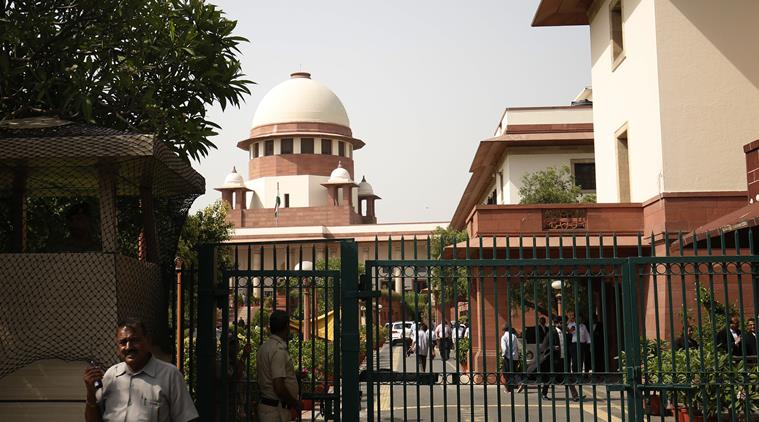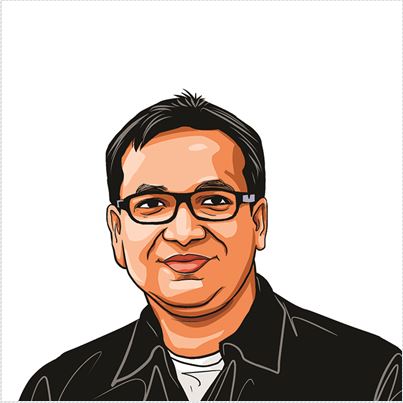Power to the legislature
The Supreme Court verdict limits the role of LG to that of a titular head in all areas of Delhi government.

Historically, Delhi has had three forms of constitutional governance. (Express Photo Amit Mehra)
Constitutional bench judgments can fundamentally determine and change the trajectory of governments. The decision of the five judges of the Supreme Court has done precisely that. The five judges spoke through three different judgments. Chief Justice of India Dipak Misra wrote for himself, Justice A K Sikri and Justice A M Khanwilkar, whereas Justice D Y Chandrachud and Justice Ashok Bhushan wrote their own separate opinions, which in substance broadly concurred with the opinion of the CJI. All the judges agreed that the purpose of giving special status to Delhi by introducing Article 239AA through the 69th constitutional amendment was to give the control over powers of law-making and administration to an elected legislature and the council of ministers responsible to such a legislature.
In no uncertain terms they have held that it is the elected council of ministers in Delhi which is the repository of executive power in all areas in the state and concurrent list of the seventh schedule of the Constitution except the three entries of public order, police and land, which have been expressly excluded under Article 239AA. This is based on the analogy from the Westminster form of government that prevails at the Centre and in the states.
The judges were unanimous that concurrence of the LG is not required for a decision of the council of ministers to be acted upon. The requirement is only to inform the LG of the decision, which in constitutional parlance is called “aid and advise”. This aid and advise of the council of ministers will be binding upon the LG. The judges also agree that the LG has no power of his own.
While the three opinions differ on the nuances of the matters that can be referred by the LG to President, all of them agree that it cannot be routine matters but must be of gravity and substance. Such reference would have to be in writing and based on reasons. It is only upon such a reference having been first made that the LG acquires power to pass emergent directions, if the situation so demands. Further, while the judgment does not say so, any such presidential reference by the LG will also be subject to judicial review, just like any other order of a constitutional authority.
Historically, Delhi has had three forms of constitutional governance. In the first phase, from 1950 to 1956, Delhi was a Part C state headed by a chief commissioner, who under the relevant enactment headed the government along with an elected chief minister and council of ministers. Under the government of Part C States Act 1950, the chief commissioner, when present, was to be a part of, and head, the meetings of the council of ministers. Also, no decision in respect of New Delhi could be implemented without the prior concurrence of the chief commissioner.
During the second phase — from 1956 till 1991 — Delhi was a simple union territory governed directly by the President through an administrator under article 239 of the Constitution. The Delhi Administration Act 1966, added an executive council and a semi-elected metropolitan council, but the overall position of Delhi as a union territory continued.
During the second phase — from 1956 till 1991 — Delhi was a simple union territory governed directly by the President through an administrator under article 239 of the Constitution. The Delhi Administration Act 1966, added an executive council and a semi-elected metropolitan council, but the overall position of Delhi as a union territory continued.
The third phase which started with the 69th amendment in 1991 and continues till date, introduced, in a stark departure from earlier two phases, a directly elected legislature and a cabinet form of government just like union or state governments, with the exclusion of only three subjects of public order, police and land. The interpretation given by the Delhi High Court had rendered the elected government of Delhi to a position of the executive council in the second phase or the council of the chief commissioner in the first phase, which were merely advisory bodies and not repositories of actual executive power.
The constitution bench has quite rightly restored the constitutional balance and the role of LG to that of a titular head in all areas in the state and concurrent lists except public order, police and land, where he will exercise powers subject to presidential delegation under Article 239 of the Constitution.
The CJI, in his majority judgment, has also held that the executive power the government of National Capital Territory (NCT) of Delhi extended to the “matters enumerated in the state and the concurrent list except matters with respect to entries which have been explicitly excluded from article 239AA(3)(a)”. As “services” is not one of such excluded matters under article 239AA(3)(a), the civil servants serving with the government of NCT will now also come under the legislative and administrative control of the elected government of Delhi. Justice Chandrachud in his concurring opinion, while relying upon an earlier four-judge bench decision of the Supreme Court in Prem Kumar v Union of India, held that the term “in so far as any such matter is applicable to union territories” used in Article 239AA(3)(a) is not a term of exclusion and state services under entry 41 of list II will include services in a union territory.
Thus, the basis of the 2015 notification of the Union government that sought to exclude “state services” from the domain of the elected government in Delhi has been undone by the four SC judges in no uncertain terms. The judgments of constitution benches are matters of great legal significance. Casual comments on them without appreciating their full import either by members of ruling party or officers of the Union government does much harm. The Union government, and the Ministry of Home Affairs in particular, should seek opinion of a senior law officer such as the attorney general before any position is taken on the 2015 notification in so far as it concerns “services”. Hopefully then, the administration of Delhi can begin in the true spirit of co-operative federalism that the constitution bench has expressed profound hope for.
The writer, an advocate, represented the Delhi government in the Government of NCT Delhi vs. Union of India in the Supreme Court. Views are personal
For all the latest Opinion News, download Indian Express App
More From Shadan Farasat
- Plurality protectsDiversity of opinions in triple talaq verdict safeguards rights of Muslim women while shielding personal law from motivated attacks ..
- Morning in TunisiaIts first successful popular overthrow of an authoritarian government is making waves across the Arab world..








































No hay comentarios:
Publicar un comentario